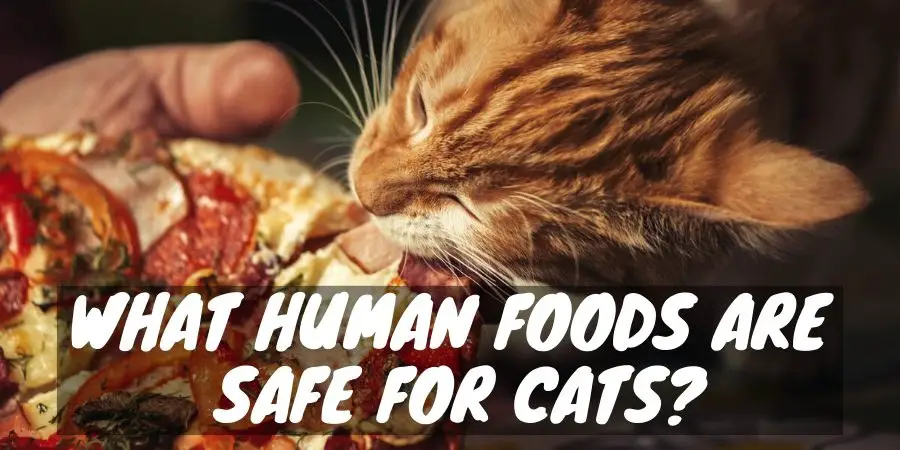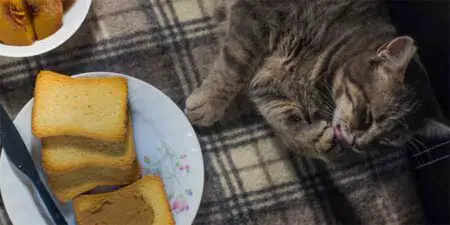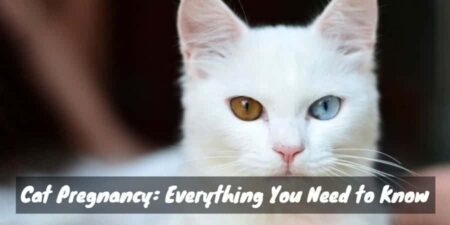Your cat loves to sit under the dining table while you eat, hoping you’ll toss him a tasty scrap or two from your dinner plate. But what human foods are safe for cats to eat?
Not everything your cat is willing to eat is good for him, and some people-foods are actively harmful to felines.
So when treat-time rolls around, go with one of these cat- and vet-approved options. They’ll satisfy that snacktime craving without hurting your cat’s health!
5 Human Foods That Are Safe for Cats to Eat
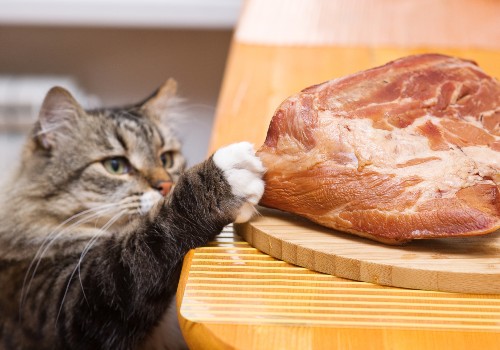
1. Cooked Meat and Fish
As obligate carnivores, cats need to eat meat — there’s just no way around it. Maybe that’s why they go so crazy when you break out the turkey slices or chop up some chicken for dinner!
On a total aside, if you’re feeding your cat chicken, you may be interested in what chickens eat. Spoiler — it’s not only bugs.
Thankfully, the meat we humans eat is also perfectly safe for cats. In fact, it’s one of the healthiest treats you can give your cat!
You’ll just need to ensure that you’re only giving your cat lean, cooked, unseasoned meat. That means no raw meat, salt, butter, oil, and extra toppings. For instance, you shouldn’t feed your cat beef jerky as it’s loaded with sodium and other risks.
It’s especially important to avoid garlic and onion, as these are highly toxic to cats. Fatty meats are also off-limits for cats, as are both cooked and raw bones.
But lean beef, cooked salmon, skinless chicken, and lean deli meats are all excellent options.
So don’t offer your cat a chunk of ham you pulled from your fancy casserole, and save those meatballs for the humans at your dinner party. But before you season that chicken or sauce up that fish filet, give a little piece to your cat — he’ll love you for it!
2. Cooked Eggs
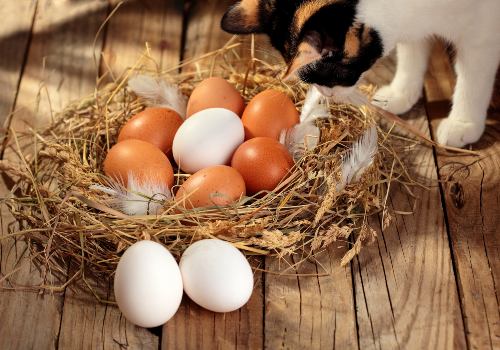
Raw eggs are a no-no for people and cats, but cooked eggs are different.
Eggs are loaded with amino acids and easy-to-digest protein, so they’re essentially feline superfoods. Fed as a treat once a week or so, a little egg could actually improve your cat’s coat, energy levels, and mood!
As with meat, preparation is key: never give your cat raw or seasoned eggs. Raw eggs could give your cat salmonella, which can be deadly, and common seasonings like garlic and onion are poisonous for cats.
Plain scrambled, hard-boiled or poached eggs are ideal for feline treat time. Many cats prefer scrambled eggs as they’re easier to eat, so start there if you’d like to introduce eggs into your cat’s diet.
3. Carrots
Hey, wait a minute — aren’t carrots rabbit food?
Yes, but believe it or not, many cats enjoy carrots as well. And luckily for them, carrots are perfectly safe for cats to munch on!
Carrots contain a lot of moisture and dietary fiber, two things that many feline diets are sorely lacking. Giving your cat carrots as a treat can improve his digestive health, reduce litter box issues and boost his energy levels.
While raw carrots are safe for cats, many cats prefer boiled or steamed carrots as they’re easier to chew. As with other people foods, keep them plain and offer them in moderation to satisfy both your cat’s taste buds and dietary needs.
4. Cooked Grains
A warm bowl of oatmeal in the morning is a great way to wake up. And a scoop of couscous can make your midday salad even more wholesome and delicious.
But it’s not just humans that enjoy whole grains. Cats do, too!
Plain-cooked oatmeal, couscous, millet, brown rice, and polenta are all excellent snack options for your cat. They’re high in protein, and cats seem to love the texture and taste.
Just make sure to cook the grains first, as cats have a hard time digesting them when raw. Skip the seasonings and consider mashing up larger grains to make them easier for your cat to eat.
5. Hard Cheeses
You’ve probably heard that cats are lactose-intolerant and that the classic “cat with a bowl of milk” is actually a recipe for poor health.
And while it’s true that cats shouldn’t consume foods that are high in lactose, hard and aged cheeses are low in lactose and generally safe when fed sparingly.
Cheddar, Gouda, Swiss, Parmesan, Asiago, and other hard cheeses are well-tolerated by most cats’ digestive systems. Cut a thin slice or grate a small amount into your cat’s bowl on special occasions — just don’t do it too often, or his stomach may get upset.
And avoid soft cheeses like mozzarella, Brie, feta, and goat cheese. Soft cheeses are much higher in lactose and are almost guaranteed to make your cat’s digestive system go haywire.
"In ancient times cats were worshipped as gods; they have not forgotten this."
-- Terry Pratchett

